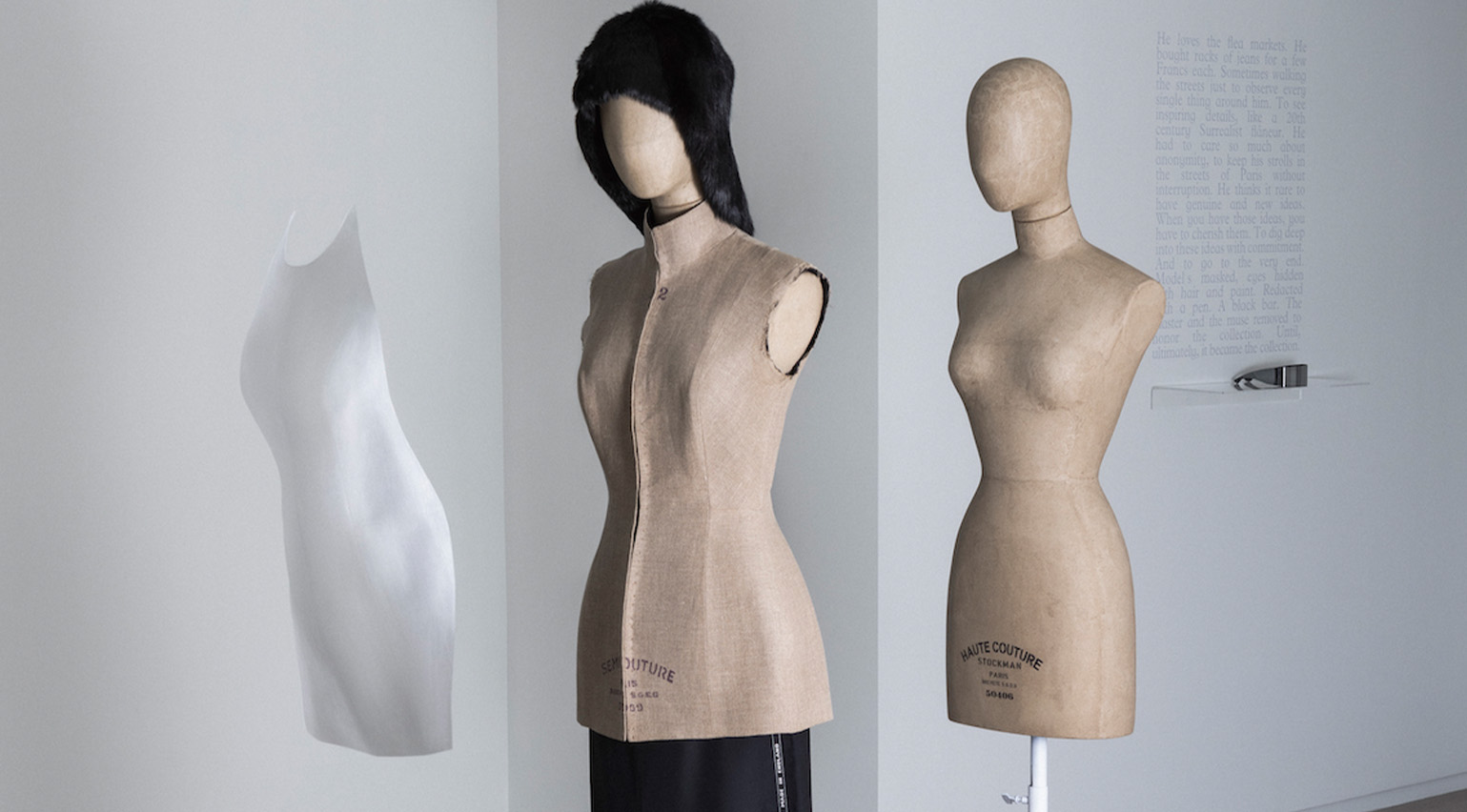
While Martin Margiela hung up his fashion gloves in 2008, his influence endures, both as a perennial reference on the runways and as an educational trove for budding students the world over. However, in the years since his departure – he has swapped the fashion studio for a career in art – his legacy as the designer’s designer has only been institutionally surveyed on a few occasions. It makes the newly opened fashion exhibition, Margiela: In the Void (until April 5, 2024), an important milestone for anyone with an interest in the history (and future) of fashion design.
The show comes from a partnership between Paris-based vintage retailer Byronesque and the Miami-based Parodi Costume Collection, home to an extensive archive of Maison Martin Margiela, Comme Des Garçons, Yohji Yamamoto and Cristóbal Balenciaga, among others. Together, the two organisations settled on the concept of ‘void’ as a way to explore the absence, anti-stardom and deconstructive approach that has defined Margiela’s oeuvre. Showcasing an array of looks from 1994 to 2005 – some of which are indeed missing certain items – the show revels in its incompleteness, treating Margiela as a springboard for critical thinking and creative response from a selection of enlisted artists.
Margiela: In The Void at Parodi Costume Collection
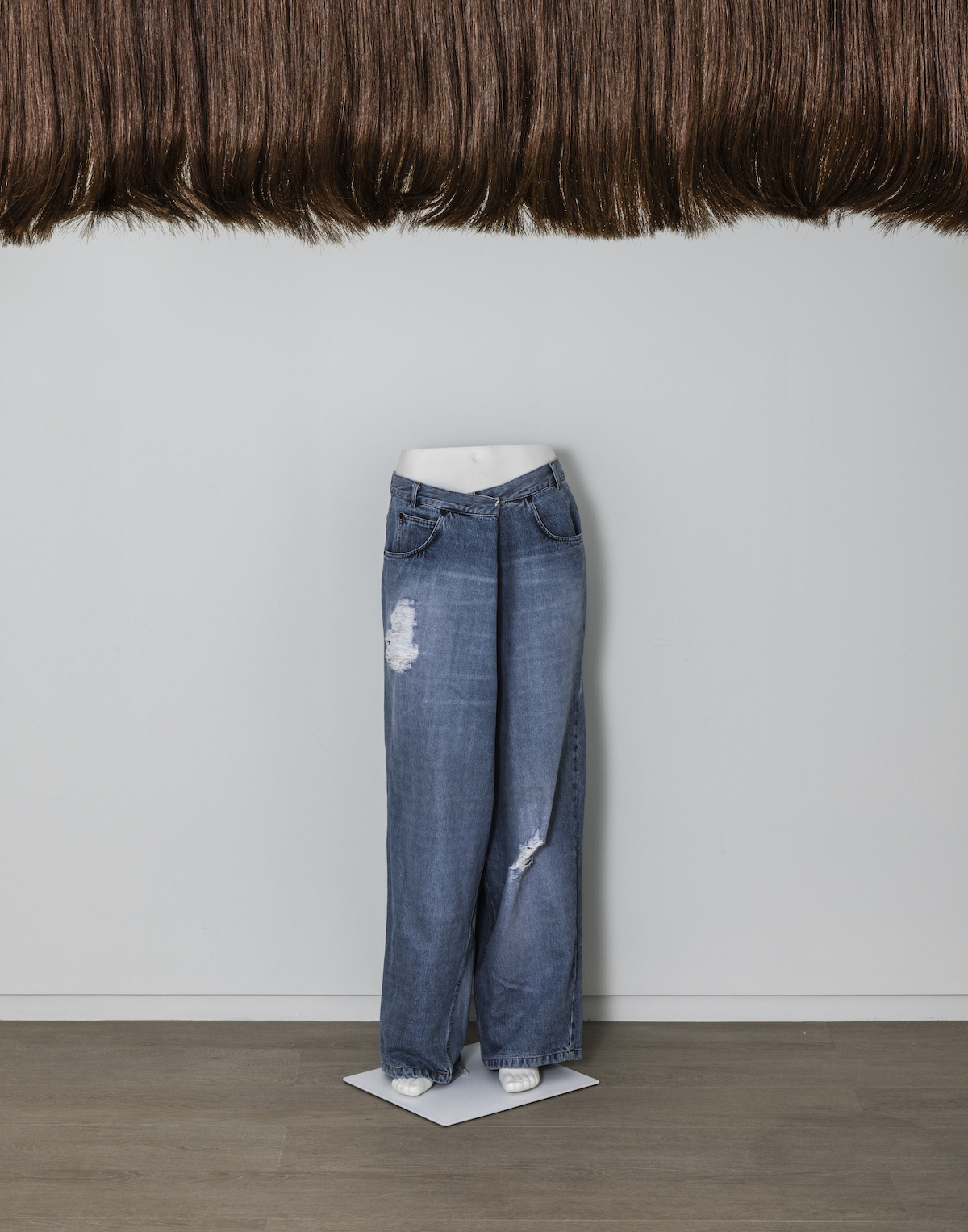
Not only is it the first Miami-based display of Margiela’s collections, but unlike previous shows – Palais Galliera’s Margiela Galliera (2018) or the 20th anniversary retrospective at MoMu (2022) – it’s also the first time that anyone has directly explored this concept of the void in his work. ‘The selection of items is very focused on icons,’ says Gill Linton, CEO of Byronesque. ‘And by that we don’t mean the obvious “Instagram icons”. The show presents items as icons because of the conceptual thought process, not simply based on fashion design.’
The designs on show, sourced by Byronesque and Parodi through former collectors, dealers and auctions stateside and on the continent, are tellingly cerebral. Take, for example, the legendary mannequin jackets from Margiela’s A/W 1997 collection, made from the oatmeal Stockman models used in traditional haute couture houses. Playfully Dadaist and truly less is more, it’s adjoined by a 3D sculptural recreation from design studio No More Mondays – a troupe renowned for their collaborations with Loewe and Bottega Veneta. ‘No More Mondays made the meta nature of the semi-couture design even more meta,’ affirms Linton.
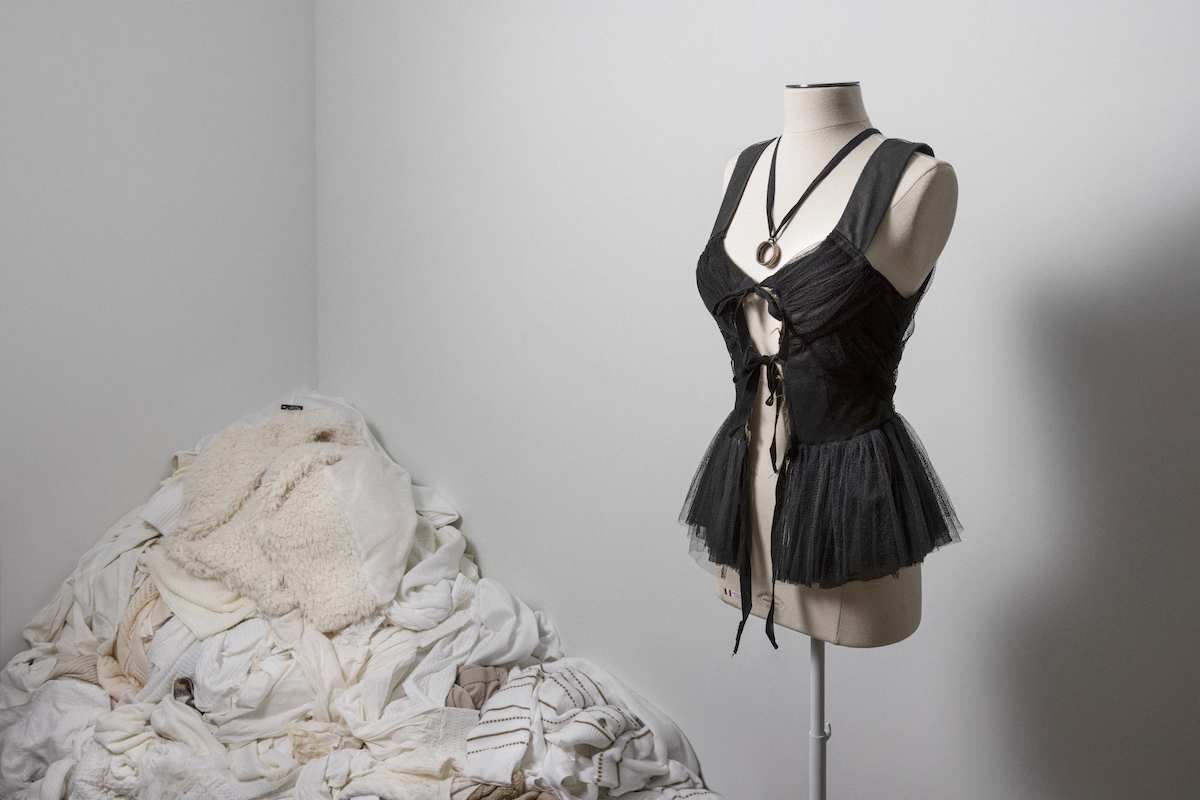
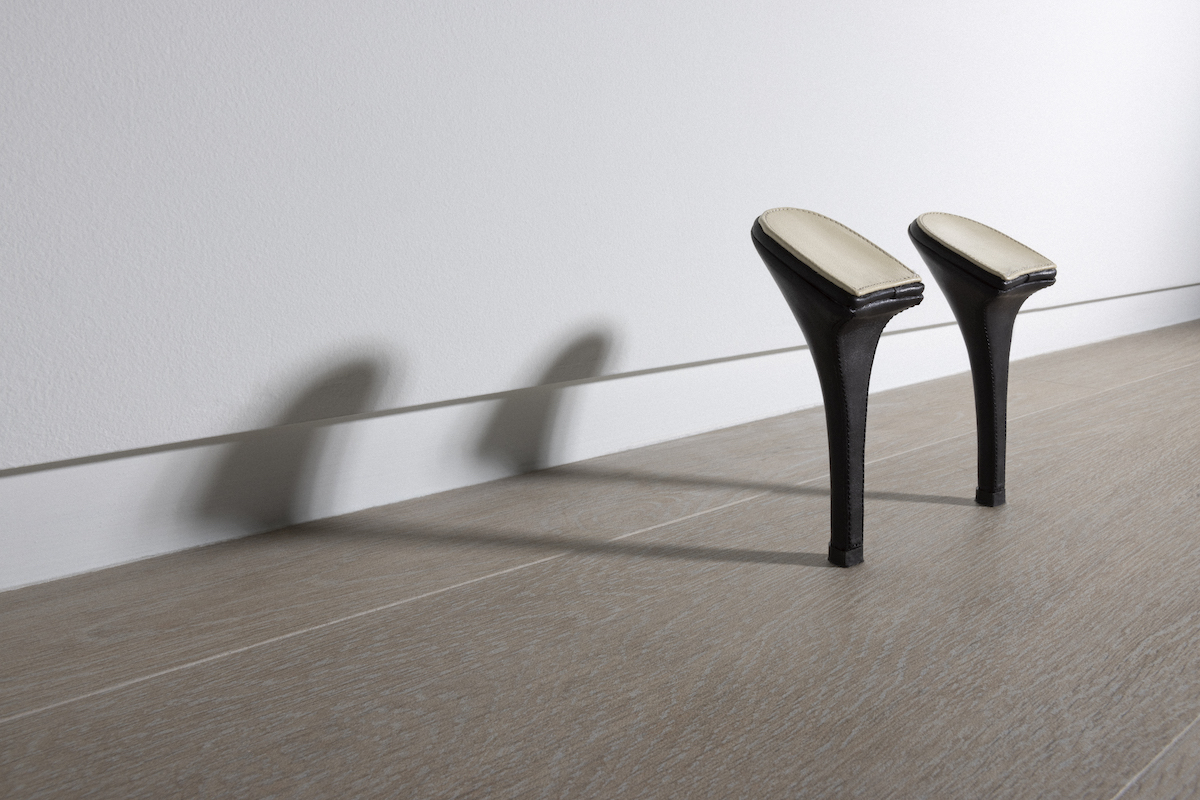
Elsewhere, the concept of void is applied to Margiela’s complete eschewal of celebrity and glamour. This applied to himself, as seen in his infamous refusal to do interviews, and also the themes he explored in his collections. Anonymity, in particular, was one of the Belgian designer’s favoured tropes, embodied by his incognito visor sunglasses of S/S 2008 and the balaclavas that often obscured models’ faces.
In fact, this rebellious approach also applied to his eccentric, magpie sensibilities that were at odds with the polish and poise of nineties and noughties fashion. Across his collections, he would use deadstock materials, be it 70s vintage, which he collected obsessively, or the quotidian clothing worn by those outside the industry, wrought with exposed stitches, sized up or left half finished. The upcycled S/S 1994 prom dress teamed with the antique solar ring pendant from S/S 1991 and the A/W 1992 unhemmed dress – dragged then by the New York Times as ‘Salvation Army’ fare – are exemplary of his anti-fashion. ‘I particularly appreciate how the void here is also Martin’s disregard for bad press and ability to take it head on,’ says Linton. ‘Oh, how the critics got it wrong.’
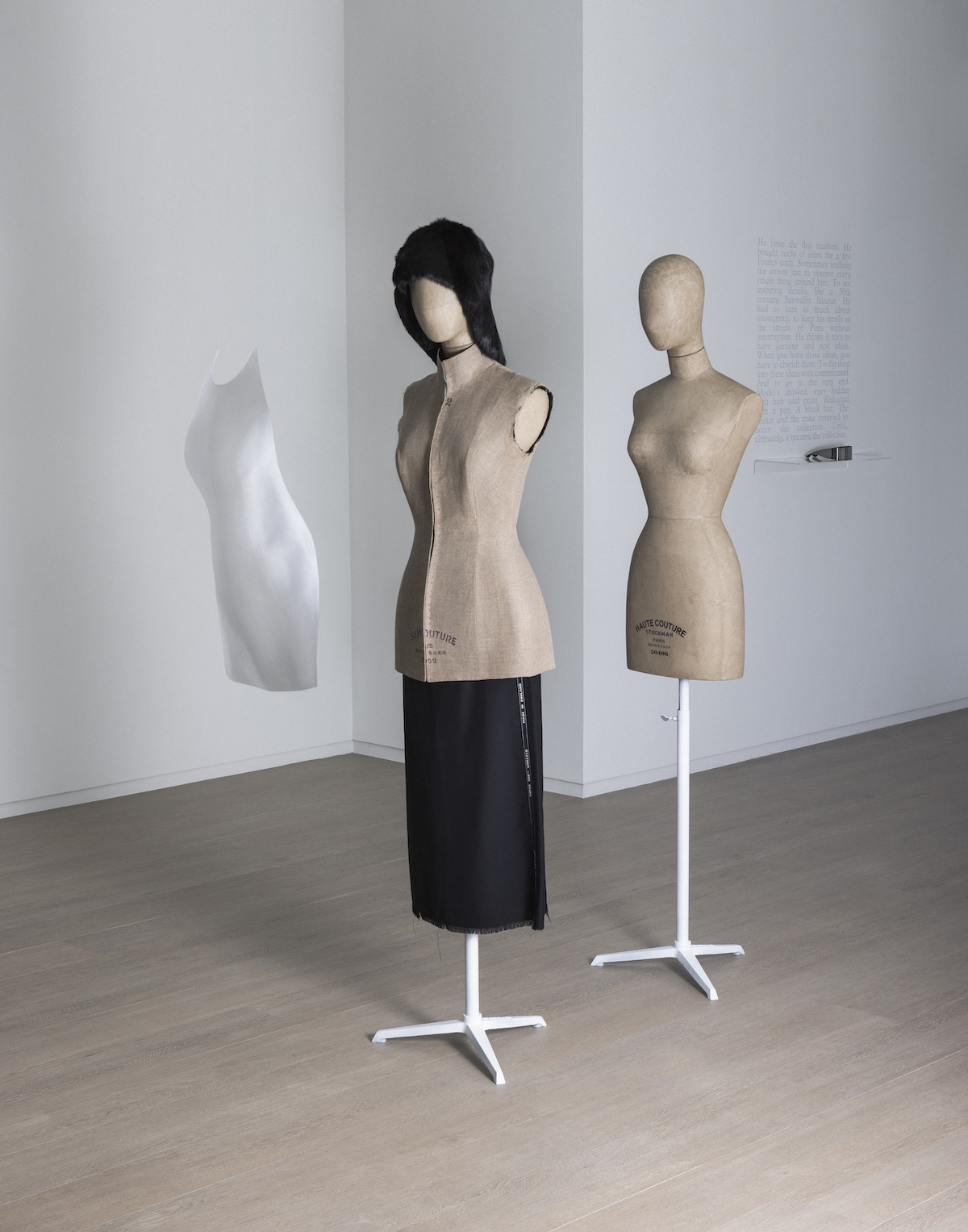
Surveying the show, it’s easy to see just how ahead of his time Martin Margiela was. Displayed with an artistic and academic bent – old garments piled in an installation, designs wrapped in dry cleaning bags and consistent curatorial restraint – the clothes become more than the sum of their parts, highlighting Margiela’s tendencies towards surrealism, Arte Povera and the Duchampian ready-made. ‘His work is loaded with value theory,’ says Gonzalo Parodi, who works on the collection. ‘We therefore like to read his propositions not unlike those of philosophers like Ludwig Wittgenstein or Jacques Derrida.’ Lofty talk, this is not. After all, Margiela is, first and foremost, a deeply conceptual figure whose medium just so happened to be fashion. Despite his absence, or void, if you will, his work still has so much to give.
Margiela: In The Void at Parodi Costume Collection, created with Byronesque, is on show now until April 5, 2024.







